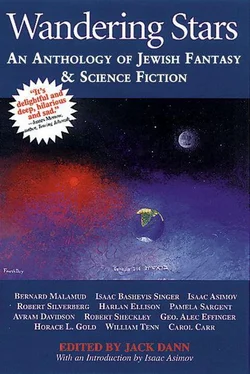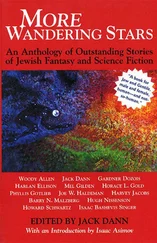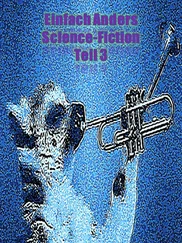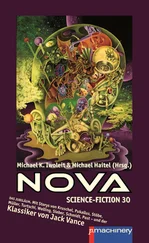But let me tell you, I also felt sad. The wisdom of The Preacher I don’t quite have, but one thing I’ve learned. Whenever someone uses the word “justice,” sooner or later there’s going to be a split head or a broken heart.
From that day on, every free second I had, I rushed off to Decatur Burrow to attend the sessions of the High Rabbinical Court. Sylvia found out about it and my life was not easy. “While you’re studying this new trade, you and that son of yours,” she said, “someone’s got to work at the old one. You’ll be a judge, he’ll be a district attorney, so I’ll have to be the TV man. Give me a pair of pliers and the Index to the Printed Circuits, and I’ll go out and make a living.”
“Woman,” I told her, “I’m doing my work and my son’s work, and I’m keeping food on the table. If the customers don’t complain, why should you? I don’t get drunk, I don’t take drugs. I’m entitled to nourish my spirit at the feet of scholars and wise men.”
Sylvia looked up at the ceiling and clapped her hands together. “He can’t nourish first a couple of daughters-in-law into the house?” she asked the ceiling. “That’s a procedure that is specifically forbidden by the holy books?”
No, my life was not easy. Why should I tell you otherwise?
But what was going on in the Decatur Burrow was so interesting I could hardly sit still while I listened to it. It was like a legend had come to life, it was like watching the golem taking a stroll one day in downtown Prague, it was like coming across the River Sabbathion and seeing it boil and bubble and throw up stones every day in the week but Saturday. Such history as the Bulbas told the Rabbinical Court!
They’d come to the fourth planet of the star Rigel maybe seven, eight hundred years ago in one of the first star ships. Originally, they had been a small orthodox community living in Paramus, New Jersey, and the whole community had been expelled to make way for a new approach to the George Washington Bridge. So they had to go somewhere, right? So why not Rigel? In those days a trip to another solar system took almost a whole lifetime, children were born on the way, people had to live, you know, close. The star ship foundations were advertising for people who already got along with each other, who were living in groups—political groups, religious groups, village groups. The Paramus, New Jersey, people weren’t the only ones who went out in a star ship looking for a quiet place where they’d be left alone. That’s how the galaxy came to be so full of Amish and Mennonites, Black Muslims and Bangladesh intellectuals, and these old-fashioned polygamous Mormons who spit three times when you mention Salt Lake City.
The only trouble was that the one halfway comfortable planet in the Rigel system already had an intelligent race living on it, a race of brown creatures with short gray tentacles who called themselves Bulbas. They were mostly peasants living off the land, and they’d just begun their industrial revolution. They had at most a small factory here, a mill or two, and a small smelting plant there. The Jews from Paramus, New Jersey, had been hoping for a planet all to themselves, but the Bulbas made them so welcome, the Bulbas wanted them so much to settle on their planet and bring in trade with the rest of the galaxy, that they looked at each other and they said, why not?
So the Jews settled there. They built a small commercial spaceport, and they built houses, and they fixed up a shul and a heder and a teenage recreation center. Nu , they called the place home.
At this point in the story, one of the rabbinical judges leaned forward and interrupted. “But while this was going on, you looked like Jews? I mean, the kind of Jews we’re familiar with?”
“Well, more or less. What we looked like particularly, we understand, was Jews from New Jersey.”
“That’s close enough. Continue.”
For a hundred, a hundred and fifty years, there was happiness and prosperity. The Jews thrived, the Bulbas thrived, and there was peace between them. But you know what Isaac Leib Peretz says about the town of Tzachnovka? “It hangs by nothing.” Every Jewish community, everywhere, hangs by nothing. And, unfortunately, nothing is not so strong. Sooner or later it gives way.
With the Jews to help them, the Bulbas began to become important. They built more factories, more smelting plants, they built banks and computer centers and automobile junkyards. They began to have big wars, big depressions, big political dictatorships. And they began to wonder why they were having them.
Is there any other answer to such a question? There’s only one answer. The Jews, naturally. Philosophers and rabble-rousers pointed out that before the Jews came there’d been no such trouble. The Jews were responsible for everything. So Rigel IV had its first pogrom.
And after the government had apologized, and helped the Jews to bury their dead, and even offered to pay for some repairs, twenty or thirty years later there was a second pogrom. And then there was a third pogrom, and a fourth pogrom. By this time, the government was no longer apologizing, and it was the Jews who were paying for repairs.
Now there came ghettos, there came barring from certain occupations, there even came, from time to time, concentration camps. Not that it was all terrible: there were pleasant interludes. A government of murderers would be followed by a halfway decent government, a government, say, of just maimers. The Jews sank into the position of the Jews who lived in Yemen and Morocco a thousand years ago, in the eighteenth and nineteenth centuries. They did the dirtiest, most poorly paid work of all. Everybody spit at them, and they spit at themselves.
But Jews they remained. They continued their religious studies, even though, on the whole planet by this time, there was not one set of the Talmud without missing books, there was not one Torah scroll without empty spaces. And the centuries went by, and they knew wars and tyrannies, devastations and exterminations. Until recently, when a new, enlightened government had come to power over all of Rigel IV. It had restored citizenship to the Jews and allowed them to send a delegation to the Neozionist Congress.
The only trouble was that by this time, after all they’d been through, they looked like just plain Bulbas. And they looked like the weakest, poorest Bulbas of all, Bulbas of the very lowest class.
But in the past couple of months they’d learned that this sort of thing had happened to other Jews, in other places. Jews tended to blend into their environment. After all, hadn’t there been blonde Jews in Germany, redheaded Jews in Russia, black Jews—the Falashas—in Ethiopia, tall Mountain Jews in the Caucasus who had been as fine horsemen and marksmen as their neighbors? Hadn’t there been Jews who had settled in China far back in the Han Dynasty and who were known in the land as the “T’ai Chin Chiao”? What about the blue Jews sitting in this very Congress? And, for that matter—
Another interruption. “These are normal physiological changes that can be explained on a reasonable genetic basis.”
If it’s possible for a brown cushion with short gray tentacles to look shocked, this brown cushion with short gray tentacles looked shocked. “Are you suggesting that such Jews—the Chinese Jews, the Russian Jews—intermarried and were allowed to remain within the congregation?”
“No, but there are other possibilities. Rape, for example.”
“So much rape? Again and again?”
The judges muttered to each other uncomfortably. Then:
“In other words, despite your appearance, you are asking us to believe that you are Jews, and not Bulbas?”
The brown cushion stretched forward with all of its tentacles. “No, we are asking you to believe that we are Bulbas. Jewish Bulbas.”
Читать дальше












